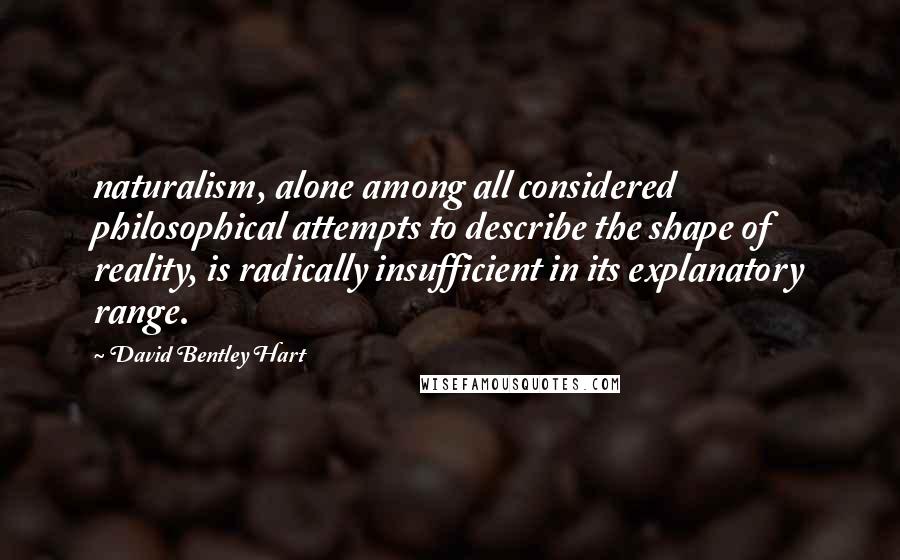David Bentley Hart Quotes
Top 21 wise famous quotes and sayings by David Bentley Hart
David Bentley Hart Famous Quotes & Sayings
Discover top inspirational quotes from David Bentley Hart on Wise Famous Quotes.
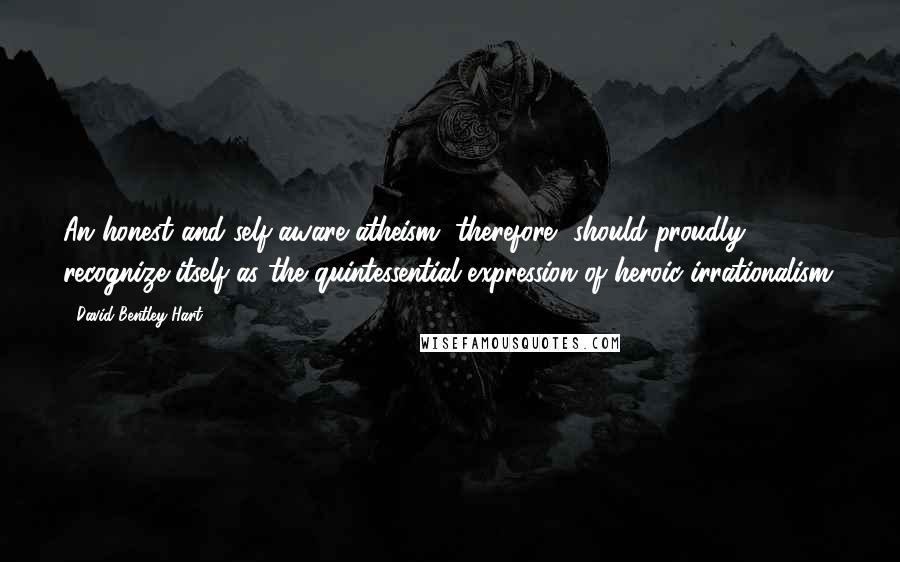 An honest and self-aware atheism, therefore, should proudly recognize itself as the quintessential expression of heroic irrationalism:
An honest and self-aware atheism, therefore, should proudly recognize itself as the quintessential expression of heroic irrationalism:
 More simply said, the finite does not add to the infinite but merely expresses the power of the infinite in a limited mode.
More simply said, the finite does not add to the infinite but merely expresses the power of the infinite in a limited mode.
 The major religions do, after all, boast some very sophisticated and subtle philosophical and spiritual traditions,
The major religions do, after all, boast some very sophisticated and subtle philosophical and spiritual traditions,
 The modern secular state's capacity for barbarism exceeds any of the evils for which Christendom might justly be indicted, not
The modern secular state's capacity for barbarism exceeds any of the evils for which Christendom might justly be indicted, not
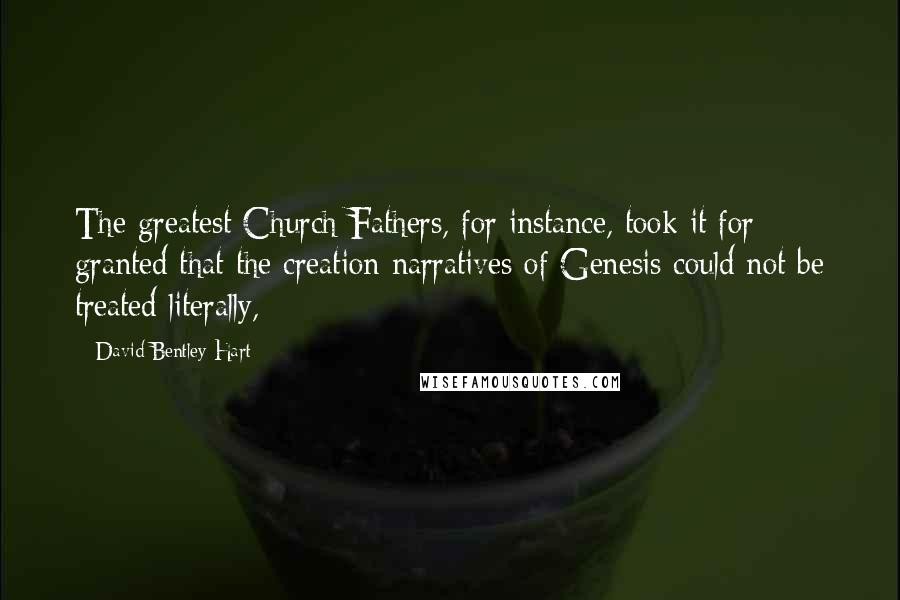 The greatest Church Fathers, for instance, took it for granted that the creation narratives of Genesis could not be treated literally,
The greatest Church Fathers, for instance, took it for granted that the creation narratives of Genesis could not be treated literally,
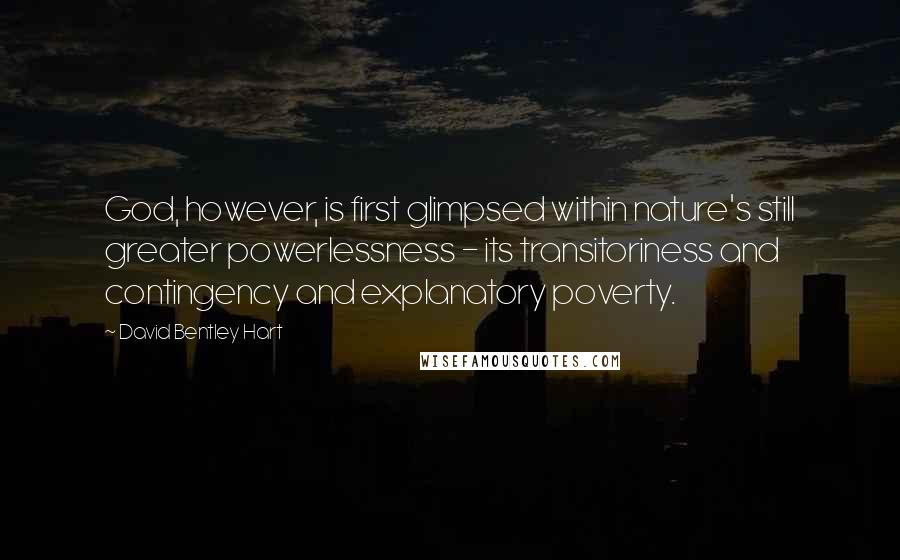 God, however, is first glimpsed within nature's still greater powerlessness - its transitoriness and contingency and explanatory poverty.
God, however, is first glimpsed within nature's still greater powerlessness - its transitoriness and contingency and explanatory poverty.
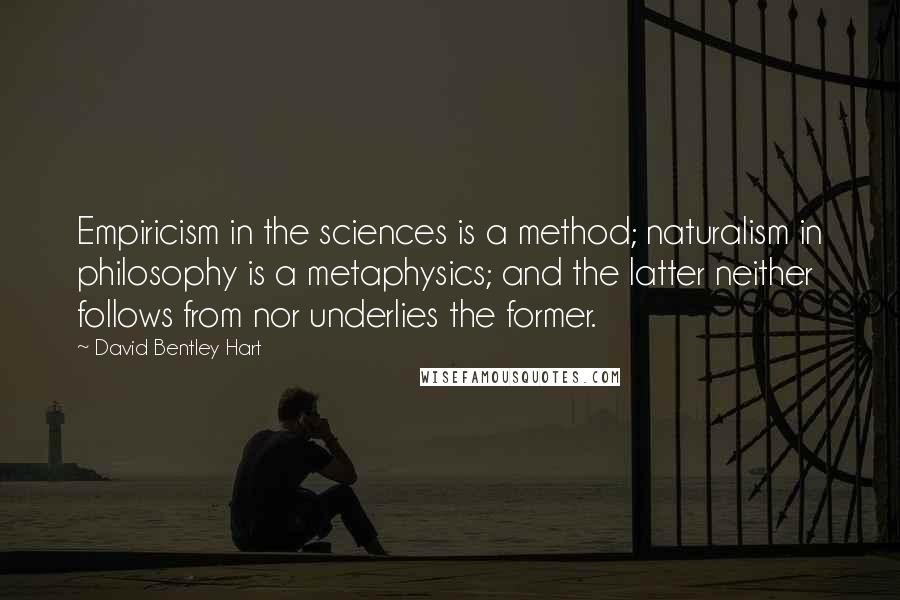 Empiricism in the sciences is a method; naturalism in philosophy is a metaphysics; and the latter neither follows from nor underlies the former.
Empiricism in the sciences is a method; naturalism in philosophy is a metaphysics; and the latter neither follows from nor underlies the former.
 Ontological necessity is not a property that can intelligibly attach to any nature other than God's.
Ontological necessity is not a property that can intelligibly attach to any nature other than God's.
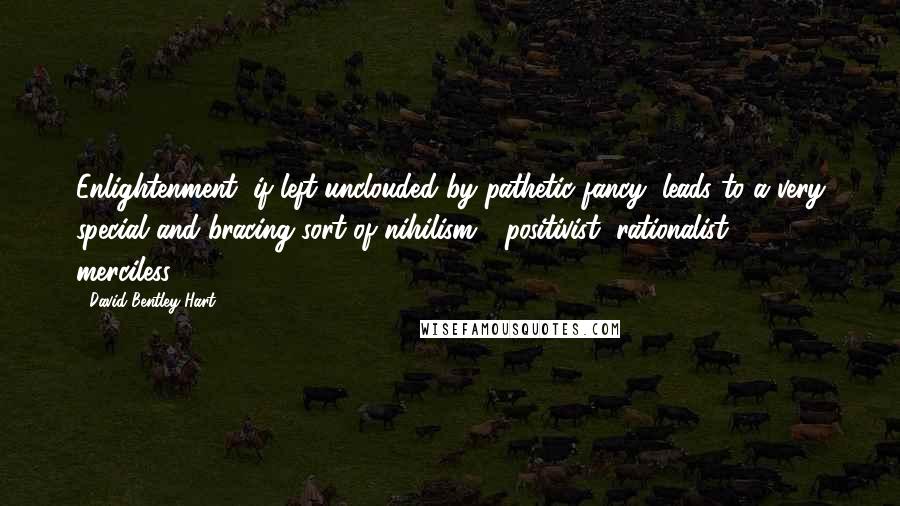 Enlightenment, if left unclouded by pathetic fancy, leads to a very special and bracing sort of nihilism - positivist, rationalist ... merciless.
Enlightenment, if left unclouded by pathetic fancy, leads to a very special and bracing sort of nihilism - positivist, rationalist ... merciless.
 It is certainly the demiurge about whom Stenger and Dawkins write; neither has actually ever written a word about God.
It is certainly the demiurge about whom Stenger and Dawkins write; neither has actually ever written a word about God.










